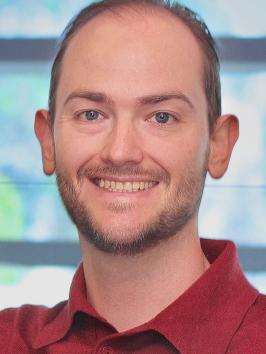
Paul Mathews, PhD
Investigator, The Lundquist Institute
Assistant Professor of Neurology, David Geffen School of Medicine at UCLA
Mechanisms underlying circuit-based learning of motor coordination and diseases in the cerebellum; Ataxia-Telangiectasia
Research Description
Dr. Mathews’ research program seeks to understand how neural communication between brain regions, in particular the cerebellum and forebrain give rise to complex animal behavior. Our current research goals are to 1) define region-specific connectivity between the cerebellum and forebrain, 2) elucidate the neural influence the cerebellum has on downstream forebrain structures (e.g. basal ganglia and prefrontal cortex), and 3) to elucidate the neural information provided by the cerebellum to the forebrain in non-motor behaviors (e.g. reversal learning). The lab currently incorporates a multifaceted set of approaches to answer these questions including in vivo multi-electrode recordings, functional Magnetic Resonance Imaging (fMRI), animal behavioral testing and anatomy. Furthermore, we are complementing these approaches with both directed (e.g. DREADD or optogenetic manipulation) and/or disease related (e.g. mouse models of autism) disruptions in cerebellar-forebrain communication to significantly advance our understanding of cerebellar-forebrain communication and its role in non-motor behavior.A second major component of our research program is to understand and devise potential treatments for the disease Ataxia-Telangiectasia (A-T). To do so, we have recently created a new mouse model of A-T that for the first time displays the phenotypical loss of motor control and contains a human related genetic mutation (i.e. nonsense mutation). With this new model we are elucidating the neuropathogenesis of the disease and testing a new small molecule therapeutic designed to read-through premature termination codons. In collaboration with others here at LA BioMed, we are further testing and developing the therapeutic potential of these small molecule read-through (SMRT) compounds along with combinatorial approaches to restore protein production in an array diseases caused by a premature stop codons.
Theme Groups
Research Interests
Education
- BS, 2001, University of Oregon, Eugene, OR
- PhD, 2008, University of Texas at Austin, Austin, TX
Recent and/or Significant Publications
Choe KY, Sanchez CF, Harris NG, Otis TS, Mathews PJ. Optogenetic fMRI and electrophysiological identification of region-specific connectivity between the cerebellar cortex and forebrain. Neuroimage. June 2018;173:370-383.
Ekins S, Mathews P, Saito EK, Diaz N, Naylor D, Chung J, McMurtray AM. α7-Nicotinic acetylcholine receptor inhibition by indinavir: implications for cognitive dysfunction in treated HIV disease. AIDS. 2017 May 15;31(8):1083-1089.
Lee KH*, Mathews PJ*, Reeves AM, Choe KY, Jami SA, Serrano RE, Otis TS. Circuit mechanisms underlying motor memory formation in the cerebellum. Neuron. 2015 Apr 22;86(2):529-40. (* Co-First Author)
